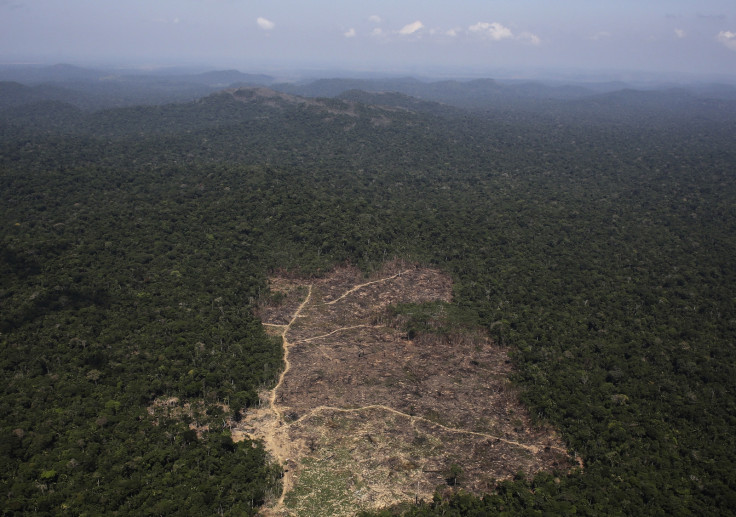Deforestation: Area of tropical forest the size of India to be cleared by 2050

An area of tropical forest the size of India is to be cleared as a result of deforestation by 2050, with current patterns showing the rate of loss is more dire than previously thought. A report by the Center for Global Development (CGD) found that 289m hectares will be lost in the next 35 years.
Scientists Jonah Busch and Jens Engelmann also found mankind will burn through a sixth of our remaining carbon budget by 2050 – this amounts to the level of emissions we have left if we are to keep global temperature rises below the 2C target. The researchers used satellite imagery to look at tropical forest data in more than 100 countries. Using a "business as usual" model of projected emissions, findings showed emissions from deforestation will climb steadily between 2020 and 2040, after which they accelerate rapidly.
"In light of new data and a new understanding of the dynamic trajectory of forest loss, we have undertaken new projections of future pan-tropical forest loss in scenarios with and without carbon pricing policies," they wrote in their report. "Our model projected that future business-as-usual tropical deforestation will rise rather than fall as projected by previous models, resulting in an area of forest loss the size of India over the next 35 years."
However, they also say much of the losses can be avoided if world leaders put a price on carbon – through taxes, payments for emissions reductions – or both. Their analysis showed rescuing tropical deforestation is a low-cost and sizable option for mitigating climate change, and that emissions that can be avoided by reducing deforestation will increase rather than decrease in the coming decades.
"Encouragingly, most of the countries where low-cost abatement is available have already signalled their willingness to reduce deforestation in exchange for results-based payments," they said. Suggestions for curbing deforestation include international carbon payments by wealthy countries to tropical countries to maintain the forests, or restrictive policies on deforestation (as was seen in Brazil which has seen an 80% drop in deforestation.
Busch said: "Conserving tropical forests is a bargain. Reducing emissions from tropical deforestation costs about a fifth as much as reducing emissions in the European Union. The Paris climate agreement needs to provide funding and other resources to stop tropical deforestation," said Engelmann. "A climate agreement without robust action on forests will simply not be enough."
© Copyright IBTimes 2025. All rights reserved.






















